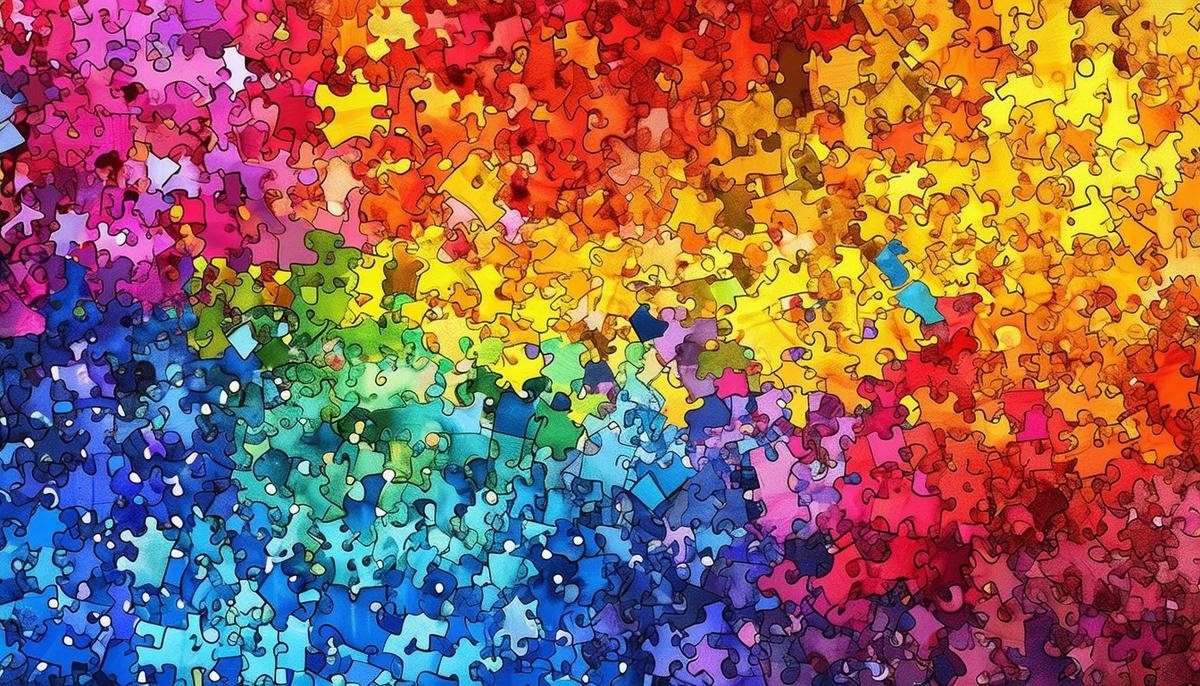
Navigating the transition from adolescence into adulthood can be challenging for any individual, let alone for those diagnosed with autism. During this pivotal period, adolescents grapple with numerous changes—physical, emotional, and social. For those with autism, these shifts can bring additional layers of complexity. This piece aims to shed light on understanding autism in adolescence, highlighting the crucial life skills for independent living, exploring education and employment opportunities as well as providing insight into social interaction and relationships. As we delve into these topics, we hope to assist in the journey of transition for individuals with autism and their families, making it less arduous and more empowering.
Understanding Autism in Adolescence
Transitions of Autism into Adolescence: Key Changes and Expectations
Entering the realm of adolescence is a significant milestone in the life of any child. It’s a time of profound changes, formidable challenges but just as often, vibrant discoveries. For an autistic child, these experiences can be both complex and amplified. Understanding the unique progression of autism into adolescence sets the stage for parents to be better prepared, more supportive, and increasingly successful in guiding their child through this crucial period of development.
A shift in behaviors is the distinguishing indicator of autism transitioning into the adolescent phase. As a child grows, so does their autism; it evolves and changes, mirroring their physical and emotional development. Common behaviors such as fixation on particular subjects, periodic sensitivities to sensory stimuli, or issues with social interactions, while somewhat manageable during early years, may escalate during puberty.
One of the most significant changes that you’ll find is growth in the arena of social capabilities. A degree of emotional maturity comes with adolescence that can show itself in surprising ways in autistic individuals. There may be an increased desire for friendships and social interactions, accompanied by a heightened awareness of the differences dividing them from their peers. Managing these new social desires can be challenging given the innate difficulties autistic individuals have with social cues and reciprocity.
The adolescent years can also see a surge of co-occurring conditions like anxiety and depression. Hormonal changes coupled with the pressures of social complexities can lead to the emergence or intensification of these conditions. Understanding this likelihood provides a forewarning, yes, but also it underscores the need for attentive mental health maintenance during this time.
Additionally, while many adolescents struggle with identity and self-image issues, these struggles can be amplified for autistic teens. They may grapple more intensely with questions of where they fit into the world and how they are understood by others.
Autistic individuals’ sensory sensitivities might also heighten during adolescence. Parents might notice an enhanced sensitivity to things like lights, noises, or touch. As parents, you can help curb discomfort by maintaining a calm, controlled environment wherever possible.
Educationally, the focus may shift as well. Depending on the resources available in your school setting, be prepared that adolescent years may place a heavier emphasis on life skills and career preparation for your child.
Remembering that every autistic child’s experiences and behaviors will manifest uniquely makes it imperative that parents stay observant and engaging. Consistency, patience, and flexibility will be your trustiest tools during this time of transformation. But perhaps most importantly, be sure to regularly affirm love and acceptance for your child – as those are the currency of their confidence and self-worth.
These transitions are challenging for adolescents and parents alike. But armed with understanding and preparation, parents can provide the empathetic guidance their child needs during this transformative phase. Embrace this period as another season of growth, not just for your child, but as a family on their team. With commitment and patience, you’ll get through this phase, stronger, wiser and more connected than before.

Skills for Independent Living
Cultivating Essential Life Skills in Individuals with Autism
Navigating life’s trials and triumphs often requires the application of a variety of essential life skills. When it comes to individuals with autism, it’s crucial to understand that these skills can greatly improve their overall experience and functionality within their daily lives. Not only will these skills provide autonomy and independence, they can also foster self-esteem and self-efficacy, leading to an empowering journey of personal growth and development.
One key life skill to nurture is communication, both verbal and non-verbal. Many autistic individuals can struggle in conversing or expressing oneself, often leading to feelings of frustration or isolation. By fostering and practicing communication skills, individuals with autism can definitely start to break down these barriers and interact more freely with the world around them. It’s important to remember that each individual’s communication style is unique and that effective communication isn’t limited to verbal language alone.
A mastery of daily living skills can provide a substantial step towards independence. Ensuring an individual with autism can handle routine tasks, such as personal hygiene, cooking, cleaning, or budgeting, will help them navigate life more easily. Giving them the tools to manage these activities can boost their confidence, fostering a sense of autonomy and self-reliance that’s truly invaluable.
Coping skills are another important area that should not be overlooked. Emotional regulation can be challenging for autistic individuals, but learning how to manage emotions can dramatically improve their overall wellbeing. From grounding strategies like deep-breathing or sensory activities, to higher order strategies like cognitive restructuring, the toolkit can be vast, and should suit the individual’s unique needs and abilities.
Social skills play an integral part in one’s interactions with peers, friends, and family members. While individuals with autism may struggle with understanding social cues or maintaining meaningful reciprocal relationships, these skills can be fostered over time. Role-playing, social stories and exposure to various social interactions can be valuable teaching tools. Encouraging connection and empathy towards others can lead to more fulfilling interactions and relationships.
It’s also fundamental to promote problem-solving skills. Life often throws curveballs and being able to navigate these situations effectively can be a great asset. Whether it’s dealing with a broken appliance or handling a difficult conversation, having the ability to identify the problem, think through possible solutions, choose the best course of action, and implement it can truly enhance one’s resilience and adaptability in the world.
Last but not least, fostering perspective-taking abilities can significantly enhance an individual’s understanding of the world and others around them. This skill allows for a greater sense of empathy and understanding, as well as enabling smoother and more gratifying experiences in social and professional situations.
Before we conclude, here’s something to remember. Each individual with autism is unique in their capabilities, challenges, and progression of learning skills. Their journey can’t and shouldn’t be compared to others, autistic or otherwise. Fostering these essential life skills is a continuous journey, much like it is for anyone else. Celebrating each achievement, no matter how small, can truly bolster the development of these individuals, offering them a fuller, happier, and more nourished life.
In this world, while we’re all striving, remember to evoke kindness, understanding, and patience — it makes the journey an enriching one for everyone. Let’s encourage individuals with autism to soar, as they too, hold a special brilliance that this world greatly needs.

Education and Employment Opportunities
Fostering Education and Career Opportunities for Individuals with Autism
Living through the complexities of autism can be a challenge, but choosing to support, prepare, and celebrate these unique individuals in their pursuit of education and future careers can pave the way for a fulfilling life.
Our focus shifts towards vital skills that open pathways to future opportunities. Let's delve into areas we can help grow - opening doors to vibrant futures for individuals with autism.
Communication skills form the foundation for personal and professional growth. We can nurture this in autism by providing simple communication strategies or alternative communication methods like sign language or speech-generating devices. Ensuring that both verbal and non-verbal cues are understood and used effectively promotes smoother interaction within society.
Daily living skills embody crucial life aspects we sometimes take for granted. From personal hygiene to cooking, budgeting, and cleaning, let's strive to guide our autistic individuals in mastering these necessary skills. This not only fosters independence but also showcases their capabilities.
Keeping emotions in check shows maturity and emotional intelligence. Teaching coping skills like emotional regulation, grounding strategies, and cognitive restructuring is equally important. This goes hand in hand with teaching our autistic family members how to manage their emotions and respond appropriately to various situations.
Social skills is an area where growth can be attained through structured processes. Understanding social cues, maintaining relationships, empathy are critical real-world skills. Let's help them navigate the social world, providing them the knowledge to interact and connect with others positively.
Able problem-solving skills equip an autistic person to overcome challenges independently. Exploring different scenarios, discussing possible solutions, and encouraging proactive thinking reassures them that they, too, can solve their own problems.
Perspective-taking abilities are key, and they align closely with empathetic understanding. Teaching autistic individuals to put themselves in others' shoes enhances their social understanding and their interactions with others.
Autism brings a unique palette, a one-of-a-kind perspective to the world. They are as different from each other as the rest of us are. Recognizing this promotes a balanced viewpoint that not all autistic individuals are the same - fostering acceptance and understanding.
Celebrating both small and big achievements builds self-esteem and encourages progress. It reinforces a positive environment that bolsters their belief in their capabilities. This instills the confidence they need to navigate education and career landscapes.
In the process of preparing them, it's equally crucial to provide continuous support, nurturing their journey through personalized experiences. Remember, it's not about changing them—it's about equipping them with the right tools to face life with a smile. So let's support these remarkable individuals in creating their unique life tapestry, one accomplishment at a time.

Social Interaction and Relationships
As we guide our loved ones with autism through the ebb and flow of social interactions and building meaningful relationships, it’s important to create a multifaceted, person-centered approach. Navigating social exchanges can be made easier when we harness unique methods that cater to our loved ones’ needs, ranging from using technology aids, behavioral strategies, to creating support groups.
– Technology as an aid: In a world where digital is king, it may be helpful to consider technology as an enabler for individuals with autism. From communication devices that can help articulate thoughts and feelings to apps that assist in recognizing and interpreting facial expressions, technology can indeed be a lifesaver. It helps to bridge the gap in social communication and interaction in a user-friendly manner.
– Behavioral strategies: Behavioral strategies can be a powerful tool in enhancing our loved ones’ social skills. These include social scripts for understanding social scenes and role-playing to anticipate various scenarios. Activities, such as board games or theatre, offer safe and controlled settings where they can practice these skills while distilled with fun and laughter.
– Building a network of support: It’s essential to understand that it takes a village to raise a child. The same goes for individuals with autism. By creating a supportive community around them, we ensure that they have trusted folks to fall back on. These network groups can involve their peers, grown-ups who they respect, or people who share the same interests.
– Tailor-made experiences: Each individual with autism is unique. What works for one might not be suitable for another. Hence, it’s imperative to give them experiences that are tailor-made to their preferences, comfort levels, and pace. It could mean allowing them to take the lead during shared activities or letting them set the tone of social interactions. The goal is to make them feel confident, safe, and unjudged.
– Patience is a virtue: Lastly, remember that the best change takes time. Sometimes, there might be two steps forward, one step back, but that’s okay. Be patient, be kind, and make sure that each step, no matter how small, is met with lots of cheer and positivity.
In conclusion, helping individuals with autism navigate social interactions and build meaningful relationships is not a one-size-fits-all. It often requires a blend of innovative solutions, a supportive community, and a whole lot of love, patience, and understanding. By adopting these strategies, we can ensure the journey they take in understanding social nuances becomes a little less daunting and a lot more rewarding.

Every individual with autism has unique strengths, capabilities, challenges, and dreams. Ensuring a smooth transition to adulthood requires a concerted effort, patience, understanding, and a wholistic approach. This involves enhancing their life skills for independent living, providing them with ample education and employment opportunities, and bolstering their social interaction capacities. While the road to adulthood may be demanding, it is essential to remember that success is defined not by societal standards, but by individual growth and the extent to which one feels valued, accepted, and included. The real victory lies in enabling individuals with autism to lead self-determined lives while promoting an equal, accepting society for all.




